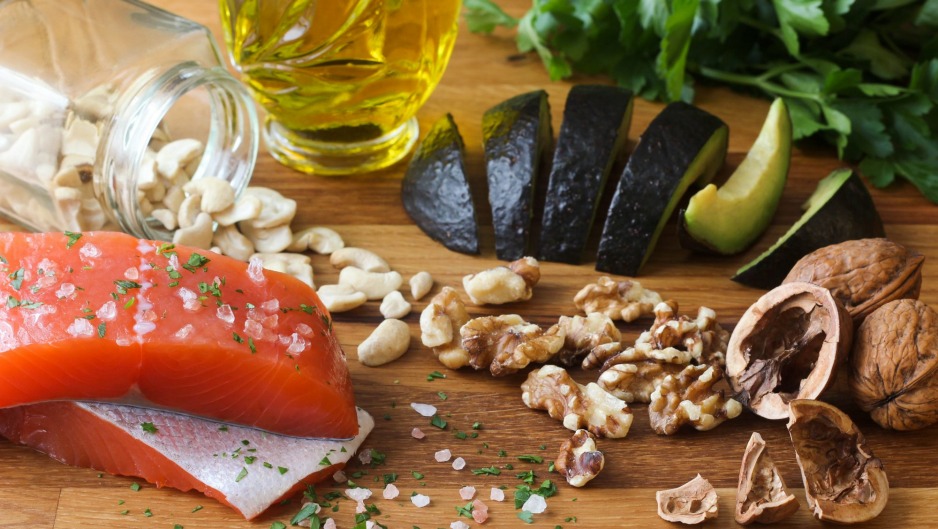Healthy Zen Healing Tips: Anti-Inflammatory Eating Habits
Arthritis is a common condition many people suffer from; but fueling the body with the right foods can substantially decrease this problem. Arthritis is one of many diseases or problematic elements that can arise in our bodies that are due to inflammation.
Inflammation is part of the body’s immune response. It alerts your body to a wound or injury, like when your ankle will start to throb and swell after a sprain, so your immune system can fix it. It’s not just external injuries that cause inflammation, however. Things like a lack of sleep, excessive stress, genetics, and—what might be worst of all—the wrong diet can all contribute to inflammation.
This is where the Healthy Zen healing tips come into action. A fiber-rich diet helps reduce inflammation by supplying naturally occurring anti-inflammatory phytonutrients (beneficial nutrients from plants) found in fruits, vegetables, and other whole foods.
Here are just a few of the anti-inflammatory super foods and tips:
- Veggies, veggies, veggies. Try to implement as much greenery into your daily consumption as possible. Alliums and crucifers are a mega boost in the anti-inflammatory department. Alliums include garlic, scallions, onions, and leeks; while crucifers are those such as broccoli, cabbage, cauliflower, mustard greens, and Brussels sprouts.
- Research shows that omega-3 fatty acids reduce inflammation and may help lower risk of chronic diseases such as heart disease, cancer, and arthritis (all of which have a high inflammatory process at their root). Aim to eat lots of foods high in omega-3 fatty acids like walnuts, and beans such as navy, kidney. I also recommend taking a good-quality omega-3 supplement.
- Similar to the previous, wild caught fresh water fish is a great source of omega-3. Cold-water fish such as salmon, oysters, herring, mackerel, trout, and sole contain an excellent source of healthy fats. Unlike plant omega-3s, the fatty acids in fish are already in an active form, meaning they’ll more efficiently attack excess inflammation through the increase in adiponectin, a hormone that enhances your muscles’ ability to use carbs for energy, boosts metabolism, and burns fat, which ultimately decrease inflammation markers. On the flip side – try to limit your meat intake. Unless you know you are getting 100% organic, grass fed meat; beef, chicken, and pork is typically fed a corn and soy diet (along with being pumped with hormones). These saturated fats they are given paired with the excess antibiotics we end up ingesting, makes our body thinks it’s in a constant state of attack. Even worse, when we grill meat at high temperatures, it creates inflammatory carcinogens. Besides limiting red meat to under three days a week, make sure you pick up lean cuts of grass-fed beef for your protein.
- We know you’ve heard it before – green tea is great for you. And it’s true that green tea has many significant health benefits, but one of the most notable is its ability to fight inflammation. One study that examined the risks of frequent NSAIDs (non-steroidal anti-inflammatory drugs) proposed green tea as a possible alternative remedy to conventional anti-inflammatory drugs such as Advil or Aspirin. Green tea contains a high concentration of compounds that can interfere with inflammatory pathways, which reduces inflammation, and can also help protect cartilage. Matcha break, anyone?
- Bring on the chia! Chia seeds contain 9 grams of healthy fats (including inflammation-suppressing ALA omega-3s) alongside a whopping 11 grams of fiber and 4 grams of protein per ounce. Chia seeds can stabilize blood sugar, boost weight loss, suppress appetite, and even help keep your body hydrated throughout the day. Put them all together, and you have an inflammation-fighting superfood.
- As silly as it may sound, drinking water and staying hydrated is so critical. Pure spring water is an essential component of the anti-inflammatory diet. Logic tells us that when there is a fire, we throw water on it to put it out. Therefore it makes perfect sense that water would help quell the cellular inflammation that goes on in our bodies. In fact, this is true. Water will decrease inflammation in the body. Note: The best choice is spring water. Avoid tap and chlorinated, fluoridated waters to eliminate substances that you do not need in your system.
For an extra punch, add anti-inflammatory herbs and spices, such as turmeric and ginger, to your cooked fruits and vegetables to increase their antioxidant capacity!
Eating with this Healthy Zen lifestyle tip in mind not only helps protect against certain diseases, but also slows the ageing process by stabilizing blood sugar and increasing metabolism.
If you want to eat for long-term health, lowing inflammation is crucial for every element inside and outside of your body.





